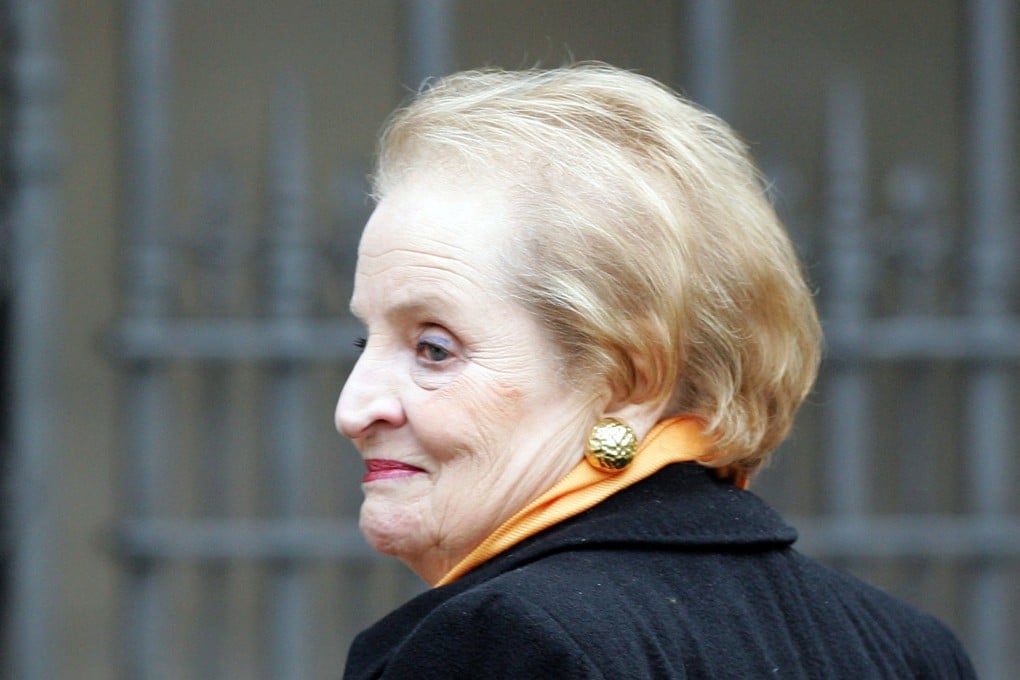Madeleine Albright, first woman to be US secretary of state, dies at 84
- Madeleine Albright remembered as America’s first female secretary of state and a mentor to women
- Albright, who enjoyed her reputation for plain-speaking, held a high position of global influence

Madeleine Albright, who came to the United States as a child refugee and rose to be the first female secretary of state, shaping American foreign policy at the end of the 20th century, has died at the age of 84.
Tapped by president Bill Clinton as ambassador to the United Nations then as the US top diplomat, Albright was one of the most influential stateswomen of her generation.
In mourning her passing, Clinton said Albright had been “a force for freedom, democracy and human rights”, calling her death an “immense loss to the world”.
US President Joe Biden said Albright had “turned the tide of history”, adding that she “defied convention and broke barriers again and again”.
At the United Nations, the Security Council observed a moment of silence before voting on a Russian-led resolution on Ukraine.
Clinton, announcing his choice of Albright to head the State Department in 1997, said gender “had nothing to do with her getting the job” and she was the most qualified candidate.
Albright, however, was aware of the significance of the appointment.